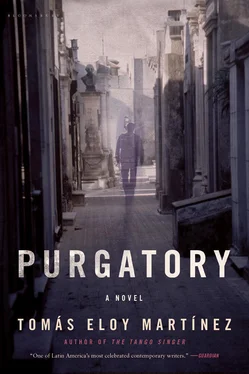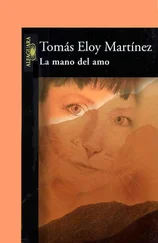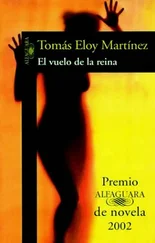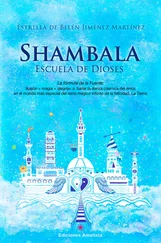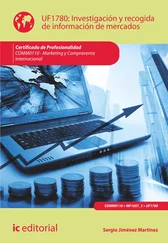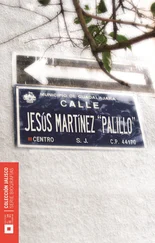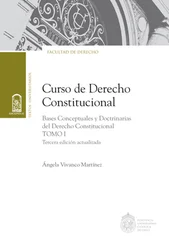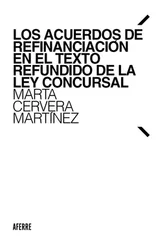Since 1955, her father had been publishing La República , a privately circulated magazine keenly read by people of influence. Every word came from reliable sources; it was an invaluable guide to protecting one’s assets from the constant devaluations of the peso, for anticipating the rate of inflation. The financial pages of the international press agreed. ‘Only sound business deals come from the pages of La República .’ Not only did La República announce forthcoming military coups, it fanned the flames that fostered them. Dupuy personally wrote the editorials linking decadence to democracy and extolling the spirit of the nation. His editorials never explained whether the ‘spirit of the nation’ changed, whether it was immutable, or what it consisted of. The ‘spirit of the nation’ was handed down unchanged from one government to the next.
In the family mansion on calle Arenales where Emilia was born, her father had been an imposing figure who rarely addressed himself to her or her sister Chela. He would ruffle their hair, ask how things were going at school and, sometimes, if they were sick, would suddenly appear to talk to the doctors. Next to him, their mother seemed like a little girl.
In late March 1976, Emilia was drawing a map of the San Rafael glacier when she heard on the radio that the new military junta was planning to rebuild the country, reform the economy and — obviously — safeguard the spirit of the nation. The new junta announced all-out war on left-wing subversives and all those who refused to conform. Argentina had to be of one mind. There was no room for dissenters, for the half-hearted, for anyone who was seen to be different.
Three nights before what was called ‘the revolution’, Emilia had gone to her father’s study to take him the guest list for her wedding. Dupuy had asked her to take his waste-paper basket, empty it into the furnace and make sure everything was reduced to ashes. Stuck to the bottom of the bin was a page of handwritten notes. As she peeled it away, Emilia read the first lines: ‘What would Argentina be without the sword, without the cross? Who would wish to go down in history as the man who deprived the spirit of the nation of one of these twin bulwarks?’ When she went back with the waste-paper bin, Emilia gave him back the page she had rescued from the flames.
‘Forget you ever saw this,’ her father warned, not bothering to look up.
‘I thought the bit about the spirit of the nation was nice.’
‘Nice? Don’t talk such drivel. These are grave, important matters. The spirit of the nation is at stake and it can only be saved by force of arms. This country is Catholic and military. It is Western and white. Those who forget that “and” do not understand anything.’ He gave a dismissive wave. ‘You clearly don’t understand anything. You’d do better to concentrate on your duties as a wife.’
Emilia and Simón were married in the church of Nuestra Señora del Carmen on April 24, one month after the coup d’état. The time of the ceremony was twice changed to foil any possible terrorist attack. Rather than entering by the main doors of the church and walking up the aisle, Emilia emerged from the sacristy on her father’s arm. In the front pew Simón’s two sisters, who had come up from Gálvez that morning, were wearing very low-cut purple-sequinned dresses, stilettos and pink hats. They wagged their heads like partridges, proud of their ample cleavage. They licked their thumbs and index fingers before making the sign of the cross, droning amen, amen , louder than the priest himself.
When they came up to congratulate their brother after the ceremony, Simón told them how happy he was they’d come and asked them not to leave, but afraid they might miss their bus, they dashed off, carrying their hats and their shoes in either hand. Emilia and Simón did not stay long at the intimate reception thrown by the Dupuys either. They had been loaned an apartment in Palermo with balconies looking out over the forest. There was a fire burning in the grate and a record player with Beatles and Sui Generis LPs. Emilia loved ‘Michelle’ and asked Simón to play it over and over.
When they lay stretched out in front of the fire and Simón kissed her throat, his fingertips searching for her breasts, she froze. Her blouse was damp with cold sweat. Until recently, she had abandoned herself to his embrace, pushed his hands into her pants so Simón could feel her wet desire. At such times it seemed to her that those lips too could speak, as though her whole body could talk dirty, but on her wedding night, her vagina remained closed, her thighs as rigid as glass rods.
‘Don’t be nervous. It doesn’t matter,’ Simón said. ‘Let’s just lie here and listen to the music. The apartment’s got three bedrooms. If you’d rather be alone, we can sleep in separate beds. It’s just one night. We’ve got the rest of our lives together.’
‘I’d like to listen to “Michelle” again,’ said Emilia. ‘I’m fine. It’s just nerves. I’ll get over it. I’m nervous because I love you so much.’
In the years that followed, Emilia would remember that duplicitous sentence many times. Couples regularly say things to each other that are hypocritical or clichéd. Though it was true that as she said the words she did love Simón, her love felt irrelevant. Her overriding feeling was one of uncertainty, as though the whole world were drawing away from her, as though nothing — no substance, no smell, no scene — would ever be as it had been before.
‘Actually, let’s not listen to “Michelle” again,’ she said, ‘it makes me sad.’
‘Are you sad?’
‘No, what makes you think that? It’s the song that’s sad.’
There was a comedy on television. Simón said maybe if they took their minds off things, focused on something else, they might get back to the way they felt before they were married. Might even forget that they were alone. He turned off the music and turned on the television. On the screen, a pale comedian was sitting on the floor of a cage on a pile of straw, wearing a black leotard through which his pitifully thin chest and his protruding ribs were clearly visible. From nearby cages came wild shrieks and roars. The comedian was obviously the only visible exhibit in a zoo — and clearly the least interesting, since people sneered, walked past his cage not even stopping to look at him, eager to see the lions or the monkeys. As the cage grew dark and light again, the sign outside changed to indicate the number of days the man had been fasting: 35 days, 40 days , and so on.
Simón explained to Emilia that this was a comic version of Kafka’s short story ‘A Hunger Artist’. Every time the lights came up, fewer and fewer people stopped to look at the hunger artist. Visitors walked straight past his enclosure to look at the animals on either side. ‘Let me out of here!’ the actor screamed. ‘Stop torturing me!’ The screen faded to black and the words ‘ 62 days later ’ appeared to the sound of canned laughter. Simón, who remembered the story, told Emilia that in Kafka’s version, the artist is proud of his record-breaking fasts and his main reason for staying in the cage is that he does not really like eating. Curiously, this version was even more Kafkaesque. On day 73, a guard came over and peered into the cage, poking the damp pile of straw with a stick looking for the comedian. Unable to see him, the attendant pressed his ear to the cage. A childlike, almost inaudible voice from the straw screamed, ‘Get me out of here! I’m disappearing!’ There was another burst of canned laughter. Eventually, a truck pulled up towing a wagon in which a restless panther was prowling. ‘There’s an empty cage here,’ the driver says. ‘Get it cleaned out, we’ve got a panther we need to house.’ Some people in the audience started shouting, ‘You can’t put a panther in that cage! There’s a starving man in there!’ while others yelled, ‘Go on, put him in the cage! Let him eat the bastard!’ Hands on his hips, the truck driver said, ‘Where is this hunger artist then? I want to see him!’ He threw open the cage, took a pitchfork and began sifting through the straw on the dirty floor. The camera zoomed in on a tiny heap of straw and the actor appeared, no bigger than an ant, screaming, ‘Don’t stamp on me!’ his voice so shrill, so faint, that only the microphone could pick it up. ‘Don’t trample me! I’m one of the disappeared!’ The sketch ended with a close-up of the sole of a shoe hovering menacingly over the actor as the audience applauded, roaring with laughter.
Читать дальше
